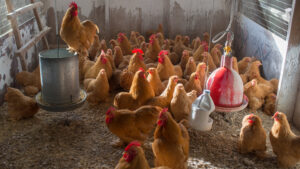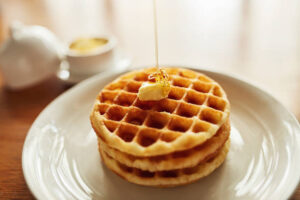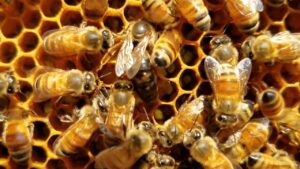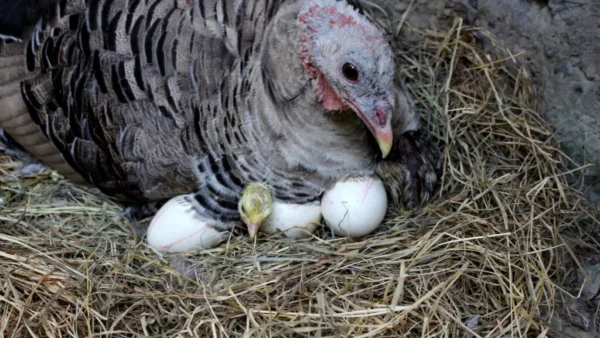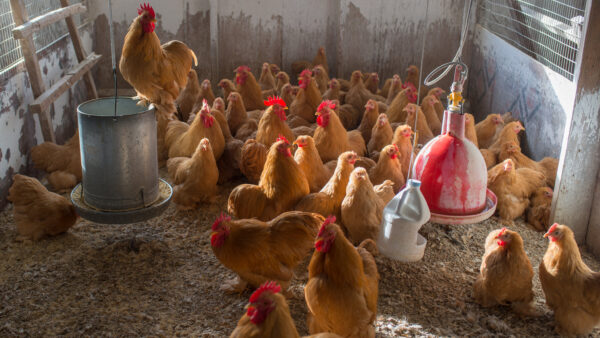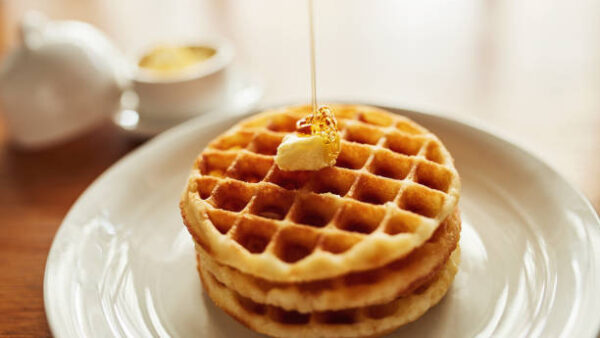Introduction
How Many Calories Is Popcorn: A famous snack, popcorn has been around for a long time at fairs, movie nights, and just for eating on your own time. People of all ages enjoy this treat because it tastes good and has a nice crunch. We’ll look at how many calories are in popcorn, how healthy it is, and what changes could be made to it. If you care about your health or want to watch how many calories you eat, you may be thinking, “How many calories are in popcorn?”
People who want to lose weight or stick to a healthy diet should know how many calories are in popcorn. Some people think of popcorn as a guilt-free, light snack, but the amount of calories it has varies a lot based on how it is made.
Popcorn is appealing for more reasons than just its taste and feel. It’s also interesting from a health point of view. Since it’s a whole grain, the bran, germ, and endosperm are all there, giving you fiber and vitamins, among other things. So, popcorn is a tempting snack for people who want to treat themselves without giving up their healthy eating goals totally.
As we talk about energy, we’ll also talk about the possible health benefits of eating some popcorn every once in a while. Popcorn has essential nutrients in it, like dietary fiber, which helps your body digest food, and polyphenols, which fight free radicals and may lower your risk of getting chronic diseases.

Popcorn Is Low in Calories
A lot of people like popcorn as a snack because it’s known to be low in calories. This means that people don’t feel bad after eating it like they do after eating many other types of snacks. Each cup of popped popcorn that doesn’t have any butter or oils added to it has only 31 calories. One of the best things about popcorn is that it’s low in calories.
Its low-calorie quality comes from the way it is made. The bran, germ, and kernel are still there because popcorn is a whole grain. This creates a snack that is high in fiber and fills you up without adding extra calories. Fiber in popcorn makes you feel full and helps your stomach, which are both excellent for people who are trying to lose weight.
A food that is high in nutrients and low in calories is popcorn. It is full of vitamins and minerals. It has a lot of B vitamins, like folate, thiamin, and niacin, which are essential for health and energy production.
If you don’t overeat air-popped popcorn, you can enjoy its natural, wholesome goodness and the health benefits of its high fiber and vitamin content without taking in too many calories. Due to its low-calorie count, popcorn can be eaten with any diet and without feeling guilty. It is also an excellent choice for people who want to have fun while eating healthily.
Popcorn Calories and Other Nutrition Facts
When popcorn is made without too many fillers, it’s not only a tasty and crunchy snack, but it’s also surprisingly good for you. A lot of people are most interested in the number of calories in popcorn when they look at its nutrition facts. One cup of air-popped popcorn has about 30 calories, making it a low-calorie option that fits well with most diets. No matter what, cooking it in butter, oil, or other flavors can make it a lot more caloric. Some movie theater popcorn, like medium-sized buttered popcorn, can have 600 to 800 calories or more because of the extra fats and flavors.
Popcorn is low in calories and high in fiber, which is good for you. One cup of air-popped popcorn has one gram of fiber, which makes you feel fuller and helps your digestive system. Both of these things may help you lose weight. Also, because it is a whole grain, the bran and germ are kept. These parts are very healthy and contain essential minerals and vitamins, such as manganese, phosphorus, and magnesium.
Another exciting thing about popcorn is that it has a lot of antioxidants. Popcorn has polyphenols that may be good for your health. They might make it less likely that you will get long-term diseases like heart disease and some types of cancer.
Also, popcorn doesn’t contain gluten by nature, so people with celiac disease or gluten intolerance can eat it.
Mention of the fiber, vitamins, and minerals found in popcorn
Popping popcorn is a healthy and fun snack food because it tastes great and has a great crunch. Because it is high in fiber, vitamins, and minerals, this small whole grain is an excellent addition to your diet.
The first thing that makes popcorn great is that it is full of nutrition. Fiber is essential for keeping your gut system healthy and keeping your bowel movements regular. It can help keep you from getting constipated and lower your risk of a number of other digestive problems. Eating enough dietary fiber can also make you feel full, which can help control your hunger and help you keep your weight in check.
There are also many essential vitamins and minerals in popcorn. It has B vitamins in it, like niacin (vitamin B3) and pantothenic acid (vitamin B5), which are suitable for your skin, nerves, and energy production. There are also small amounts of vitamins A, riboflavin, and folate in popcorn. All of these are good for your health and well-being.
Minerals like zinc, iron, and magnesium are found in large amounts in popcorn. Magnesium is essential for bone health, muscle and nerve function, and the defense system. Zinc helps wounds heal, the immune system works, the senses of taste and smell, and bone and tooth health. Phosphorus plays a part in these processes.
Popcorn is a tasty snack that may also be good for you because it has a lot of dietary fiber, vitamins, and minerals. Along with enjoying this traditional treat, you can get essential nutrients and more fiber all in one tasty bite. This means that the next time you eat a bowl of popcorn, you’re not only enjoying a delicious snack, but you’re also giving your body essential nutrients.
Discussion of how the method of preparation affects calorie count
The way popcorn is made has a significant effect on how many calories it has. Popcorn is a healthy food that is low in calories because it is made from whole grains. But depending on how it’s made, it may be a high-calorie choice.
In terms of health, air-popped popcorn is the best way to make popcorn. Since it doesn’t use oil, there aren’t any extra calories. Each cup of air-popped popcorn has about 31 calories. Because it keeps the natural taste of whole grains, this is an excellent option for people who want a low-calorie snack.
Popped Popcorn: For a snack, cooking popcorn in oil adds a lot of calories. Different kinds and amounts of oil are used, and some store-bought popcorn recipes include butter or other flavorings. Depending on the oil and any other ingredients, a cup of oil-popped popcorn has between 55 and 80 calories.
Microwave Popcorn: Making your microwave popcorn is easy, but many store-bought microwave popcorn bags have extra fats and flavors that can make it high in calories. Because some microwave popcorn brands may have up to 100–150 calories per bag, it’s essential to read the nutrition information and make an informed choice.
Homemade Popcorn: You can control what goes into the popcorn more when you make it yourself. To make food taste better without adding extra calories, use small amounts of healthy oils, herbs, or spices that make food taste better. Making your popcorn is a healthier choice that you can customize.
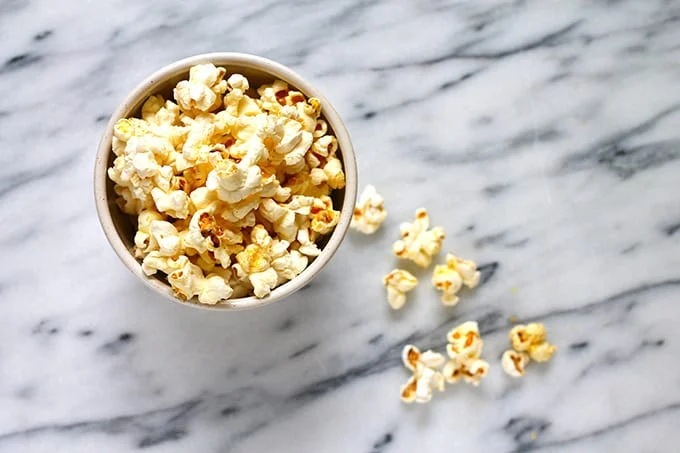
The popularity of popcorn as a snack
Popcorn is a favorite snack that people of all ages have loved and enjoyed for a very long time. These simple but tasty treats are now famous for many events, like movie nights, carnivals, sporting events, and just for eating. There are many reasons why popcorn has been noted for a long time.
To begin, a lot of people can afford popcorn, which makes it easy for a lot of people to enjoy. People who want a cheap treat, like families, students, and anyone else, have come to love popcorn. It’s easy to store and doesn’t cost much.
And the fact that it’s easy to make makes it even more appealing. A microwave or pot with a lid and some heat will turn a handful of kernels into a deliciously fluffy snack. The process is simple and quick, whether you do it on the stove, in the microwave, or with exceptional popcorn makers.
Another important thing that makes popcorn appealing is how good it smells when it’s first popped. It’s a tempting option for parties and meetings because the smell can make people hungry and make them feel better.
Popcorn can also fit into a lot of different taste profiles because it is so versatile. There are many kinds of popcorn, from the buttered popcorn you get at the movies to sweet and savory flavors and even fancy popcorn with truffle oil and parmesan.
As a snack, popcorn is very popular because it’s cheap, easy to make, smells great, can be made to taste different ways, and is healthy. Because of these things, popcorn has been a famous and long-lasting snack option.
Explanations of flavored popcorn and their added calories
Popcorn is naturally healthy, but different spices and additions are mixed in to make flavored popcorn, a tasty and popular snack that lets you try a lot of different flavors. Depending on the ingredients and how they are used, these flavorings can have a significant effect on the number of calories in popcorn. Here is a list of all the extra calories that can be in salted popcorn:
There are many types of flavored popcorn, such as buttered, cheesy, caramel, spicy, and more. Oils, sauces, coatings, and spices are used to make these tastes. For example, real butter or butter-flavored oils are often used to make buttered popcorn, both of which can add a lot of calories. Cheesy popcorn is made with cheese powder or spices that taste like cheese, while caramel popcorn is covered in a sweet, syrupy caramel sauce.
The flavorings and layers on flavored popcorn are mostly to blame for the extra calories. For instance, adding butter or oil to popcorn can make it hundreds of calories more. Cheesy Popcorn has more calories because it has cheese powder in it, which is usually high in fat and calories. Some kinds, like kettle corn or caramel corn, have a sugary glaze or caramel covering that makes the snack more caloric.
It is essential to know that flavored popcorn has a lot of different calorie numbers depending on the brand and recipe. Other companies may use different amounts of calories and different kinds of spices and sauces. So, if you want to limit the number of calories you eat while having flavored popcorn, keep in mind that it may have extra calories, and think about controlling your portions. Flavored popcorn can be a tasty treat once in a while, but it shouldn’t be a big part of your healthy diet.
Comparison of the calorie content between plain and flavored popcorn
There are significant changes in the number of calories in plain and flavored popcorn. Most air-popped or barely cooked popcorn is low in calories, which makes it a good snack for people who are watching how many calories they eat. About 93 calories are in a 3-cup serving of standard air-popped popcorn. This makes it a popular choice for people who want a light snack that will fill them up.
Popcorn that has been seasoned with cheese, butter, toffee, or other flavors may have a lot more calories. When flavorings are added, they are often accompanied by extra fats, sugars, and other high-calorie ingredients. For example, a small bag of buttered or cheesy popcorn from the concession stand could have 200 to 400 calories, or even more, based on how much is eaten and what ingredients are used.
Because they are wrapped in sugar, caramel-coated or kettle corn popcorn can have even more calories per cup—often more than 150. Both sweet and savory tastes may make the total number of calories higher by adding more sugar or sodium.
Spiced and plain popcorn have very different amounts of calories. Because it has more ingredients, flavored popcorn has more calories. Plain popcorn, on the other hand, is usually better and tastes great. People should think about their nutritional goals, their best flavors, and how eating popcorn as a snack might affect their overall caloric intake.
Popcorn as a snack option for weight management
When you think of weight loss, popcorn might not be the first thing that comes to mind because it’s usually linked to movies and tasty foods. Popcorn, on the other hand, can be good for you if you make it the right way, especially if you’re trying to lose weight. This is why:
Low-Calorie Density: Air-popped popcorn has very few calories, even though it is made from whole grains. It’s possible to feel full after eating a lot without taking in too many calories. It’s a great way to satisfy your snack needs without consuming too many calories.
As a result of its high fiber content, popcorn can help you feel full longer and avoid overeating. By making you feel less hungry, fiber enables you to stay away from harmful, high-calorie snacks.
As you eat popcorn, the delicious crunch can make you feel like you’ve overindulged, even if you haven’t. This can help people who are trying to control their weight in their minds.
Whole Grain Pros: Popcorn is a whole grain because it still has its bran and germ. The many nutrients in whole grains can help keep your food healthy.

Conclusion
To live a healthy life and make smart food choices, you need to know how many calories are in popcorn. Popcorn is a famous snack that can be eaten anywhere, like at home during movie night or in a movie theater. However, the way it is cooked and sweetened can have a significant effect on how many calories it has.
We looked at how many calories are in popcorn and found that regular air-popped popcorn has about 30 calories per cup, which makes it a low-calorie snack. For people who are watching their calories, this is an excellent choice because it is a crunchy, whole-grain breakfast that is also high in fiber.
But it’s essential to keep in mind that toppings and flavors can significantly change the number of calories in a pop. It’s easy to turn a healthy snack low in calories into a high-calorie treat by covering it in butter, oil, cheese, or sugar. People can make better food choices that fit their eating goals and preferences when they know about the changes in calorie content that these things cause.
Not only that, but remember that popcorn is more than just calories. It is suitable for you because it is a whole grain and has fiber, vitamins, and minerals. That is a good choice if it is made without a lot of extra sugar and fat.




